Tag Archive for: supreme court
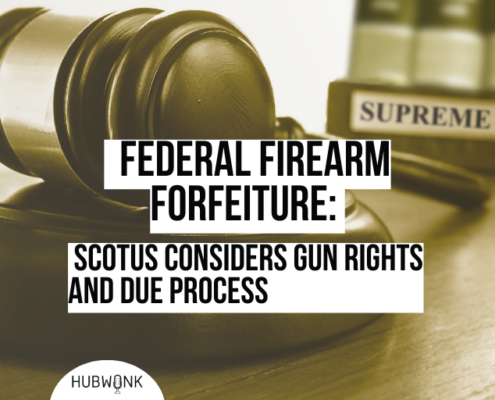
Federal Firearm Forfeiture: SCOTUS Considers Gun Rights and Due Process
Joe Selvaggi hosts a conversation with constitutional legal expert Clark Neily, who delves into the facts and legal complexities surrounding USA v. Rahimi, currently before the Supreme Court. This case questions the forfeiture of Second Amendment rights for individuals accused of domestic abuse.
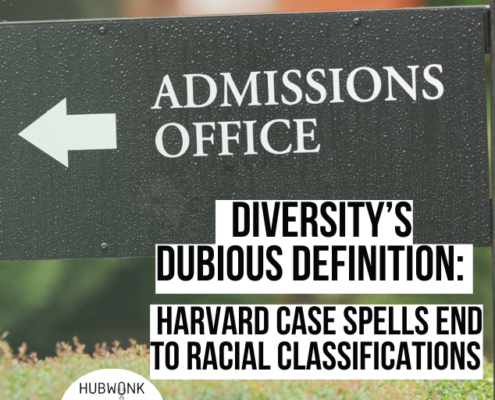
Diversity’s Dubious Definition: Harvard Case Spells End to Racial Classifications
Joe Selvaggi discusses the implications of the Students for Fair Admissions v. Harvard case for race and ethnicity-based programs with David Bernstein, a Distinguished Law Professor at George Mason University and an Adjunct Fellow at the CATO Institute.
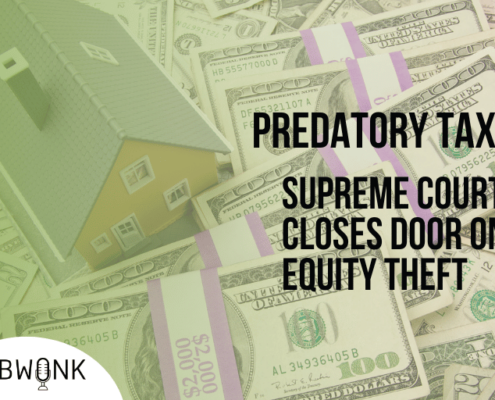
Predatory Tax Ruling: Supreme Court Closes Door on Home Equity Theft
Joe Selvaggi talks with Pacific Legal Foundation’s state legal policy deputy, attorney Jim Manley, about home equity theft, a practice that has taken 350 properties in Massachusetts, dispossessing homeowners of more than $50 million in equity.
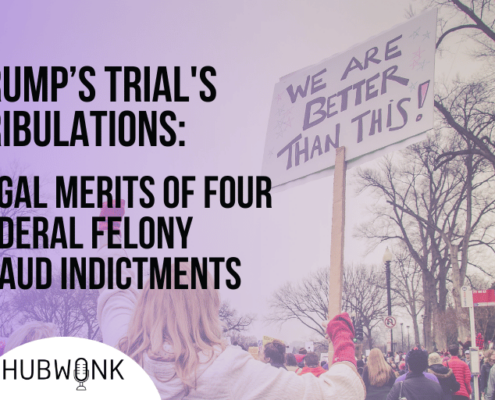
Trump’s Trial’s Tribulations: Legal Merits of Four Federal Felony Fraud Indictments
Joe Selvaggi talks with legal scholar and George Mason University professor Ilya Somin about the legal merits of the federal indictments against former President Donald Trump and what is likely to come next in the legal proceedings against him and other defendants in the cases involving the aftermath of the 2020 presidential election.

Becket Fund’s Eric Rassbach on Religious Liberty & American Schooling
Eric Rassbach of the Becket Fund for Religious Liberty discusses school choice and religious freedom, competing legal philosophies and views of the U.S. Constitution, and why issues pertaining to religion and schools remain so divisive at the K-12 level.
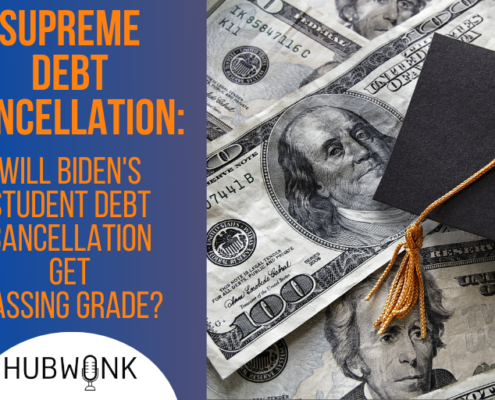
Supreme Debt Consideration: Will Biden’s Student Debt Cancellation Get Passing Grade?
0 Comments
/
Joe Selvaggi talks with constitutional scholar Ilya Somin about the merits and likely success of the two Supreme Court cases Nebraska v. Biden and Department of Education v. Brown, which challenge the President’s constitutional right to cancel more than $400 billion in student debt.
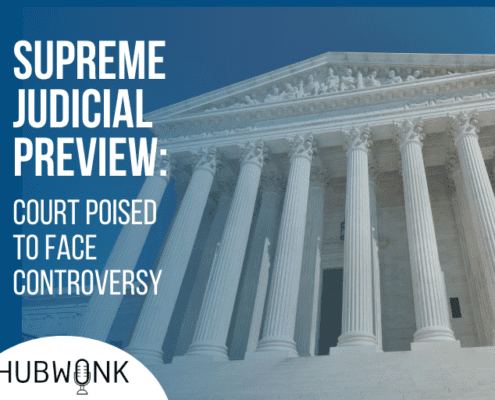
Supreme Judicial Preview: Court Poised To Face Controversy
This week on Hubwonk, host Joe Selvaggi talks with constitutional scholar Thomas Berry about the important questions being decided in the more high profile cases facing the newly opened session of the Supreme Court. They discuss how the addition of newly appointed Justice Ketanji Brown Jackson could add a fresh perspective on the concept of originalism.

William & Mary’s Dr. Charles Hobson on Chief Justice John Marshall, SCOTUS, & Judicial Review
This week on “The Learning Curve," co-hosts Cara Candal and Gerard Robinson talk with Dr. Charles Hobson, a retired resident scholar at the William & Mary Law School, 26-year editor of The Papers of John Marshall, and author of The Great Chief Justice: John Marshall and the Rule of Law. Dr. Hobson shares what students should know about the longest-serving, most important chief justice in the history of the Supreme Court, and his influence on our understanding of the U.S. Constitution.
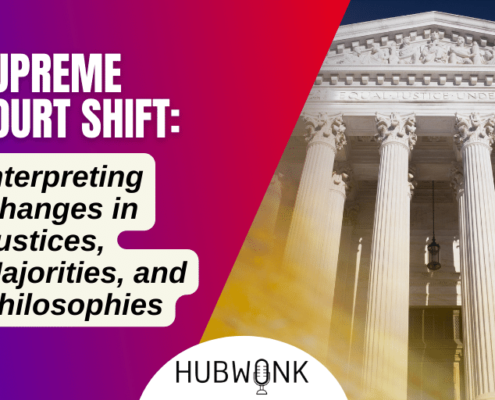
Supreme Court Shift: Interpreting Changes in Justices, Majorities, and Philosophies
This week on Hubwonk, host Joe Selvaggi talks with Ilya Shapiro, constitutional scholar, author, and senior fellow of Constitutional Studies at the Manhattan Institute, about the changing makeup of the court, and how this term’s most high-profile decisions reveal the judicial philosophies that comprise the current bench.

Lead Plaintiff David Carson & IJ Attorney Arif Panju on Landmark SCOTUS Decision Carson v. Makin
This week on “The Learning Curve," co-hosts Gerard Robinson and Cara Candal talk with Arif Panju, a managing attorney with the Institute for Justice and co-counsel in the U.S. Supreme Court school choice case, Carson v. Makin; and David Carson, the lead plaintiff. Panju shares the key legal contours of Carson v. Makin and the potential impact of the Court’s decision in favor of the plaintiffs.
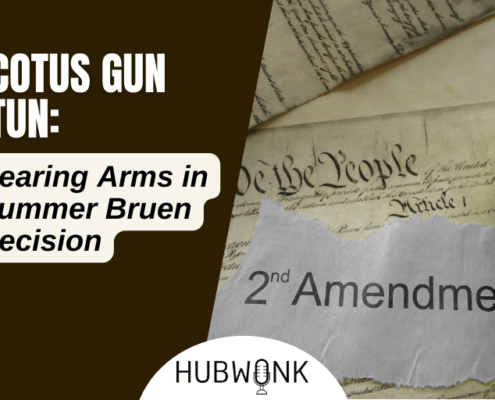
SCOTUS Gun Stun: Bearing Arms in Summer Bruen Decision
This week on Hubwonk, host Joe Selvaggi talks with CATO Institute research fellow Trevor Burrus about the recent U.S. Supreme Court decision New York State Rifle and Pistol Association v. Bruen and its implications for an individual’s right to carry a fire arm in states such as Massachusetts.

UVA Law Prof. G. Edward White on Law, Race, & the U.S. Supreme Court in American History
This week on “The Learning Curve," as the nation prepares for the likely confirmation of its first Black female U.S. Supreme Court justice, Cara Candal and Gerard Robinson talk with Dr. G. Edward White, David and Mary Harrison Distinguished Professor of Law at the University of Virginia School of Law, and author of the three-volume book, Law in American History.
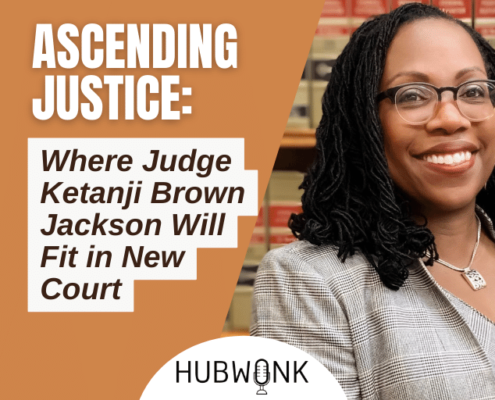
Ascending Justice: Where Judge Ketanji Brown Jackson Will Fit in New Court
Hubwonk host Joe Selvaggi talks with constitutional scholar Ilya Shapiro about Judge Ketanji Brown Jackson’s nomination hearings and what her background and responses reveal about her views on the Constitution, the role of the Supreme Court, and her likely judicial positions relative to her fellow justices.

EdChoice’s VP Leslie Hiner on Landmark SCOTUS Decisions for School Choice
This week on “The Learning Curve," co-hosts Cara Candal and Gerard Robinson talk with Leslie Hiner, Vice President of Legal Affairs and Director of Legal Defense & Education Center with EdChoice. They discuss the the landmark U.S. Supreme Court (SCOTUS) decision in Brown v. Board of Education, among the most important in the nation’s history, and how Brown’s call for racial access and equity in K-12 education has helped inform the work and advocacy of the school choice movement.
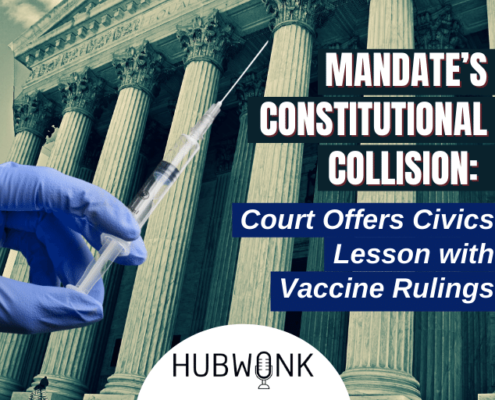
Mandate’s Constitutional Collision: Court Offers Civics Lesson with Vaccine Rulings
Hubwonk host Joe Selvaggi talks with Cato Institute Vice President Ilya Shapiro about the recent Supreme Court vaccine mandate rulings and what they tell us about the limits of executive branch power and the sitting justices’ views on the guidance of the U.S. Constitution.

Pioneer Institute Files Amicus Curiae Brief in U.S. Supreme Court School Choice Case
Pioneer Institute has filed an amicus curiae brief in Carson v. Makin urging the Supreme Court of the United States to strike down a provision of Maine law. The Court will hear oral arguments in Carson this morning (December 8) at 10 am. The Maine law being challenged allows districts that don’t have their own schools to contract with a school or pay for students that choose to attend public or private schools, but explicitly excludes religious schools.
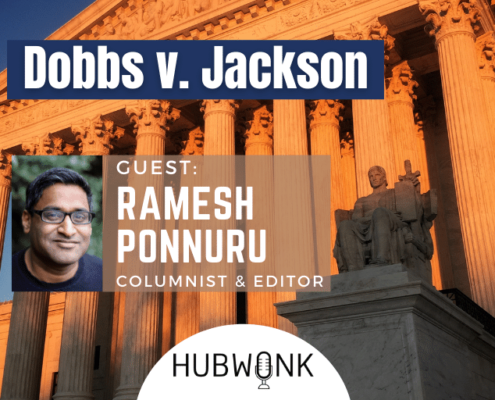
Dobbs v. Jackson Supreme Court Case
This week on Hubwonk, host Joe Selvaggi talks with writer and historian Ramesh Ponnuru about the Supreme Court case, Dobbs v. Jackson Women’s Health Organization.

The Institute for Justice’s Michael Bindas on the SCOTUS, Carson v. Makin, & Expanding School Choice
This week on “The Learning Curve," co-hosts Cara Candal and Gerard Robinson talk with Michael Bindas, a senior attorney with the Institute for Justice (IJ). They discuss IJ’s 2020 landmark U.S. Supreme Court win in Espinoza v. Montana Department of Revenue, and its implications for state Blaine Amendments, bigoted legal barriers that have blocked religious liberty and school choice for over a century, as well as the Maine school tuitioning case, Carson v. Makin, which was recently granted certiorari.
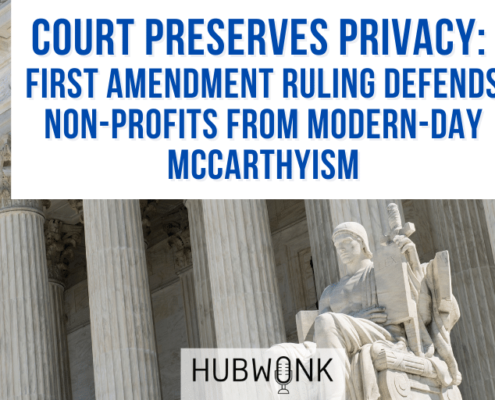
Court Preserves Privacy: First Amendment Ruling Defends Non-Profits From Modern-Day McCarthyism
Hubwonk Host Joe Selvaggi talks with CATO research fellow and constitutional scholar Trevor Burrus about the recent Supreme Court ruling, Americans For Prosperity Foundation v. Bonta, reaffirming the right to privacy by denying the state of California the right to compel non-profits to disclose their list of donors.
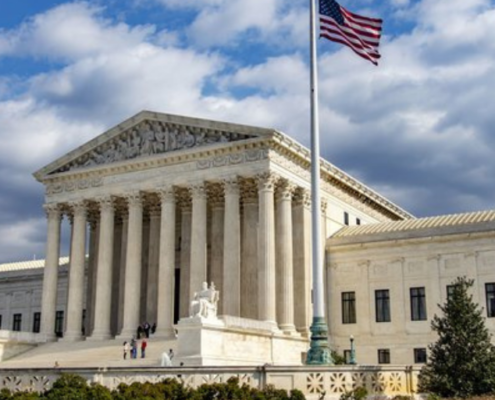
A Republic of Laws – The U.S. Supreme Court – 40 Resources for High School Students
In Pioneer’s ongoing series of blogs on curricular resources for parents, families, and teachers during COVID-19, this one focuses on: Celebrating the U.S. Supreme Court.

Law Prof. Melvin Urofsky on Justice Louis Brandeis, the SCOTUS, & Dissenting Opinions
This week on “The Learning Curve," Gerard and Cara talk with Melvin Urofsky, Professor of Law & Public Policy and Professor Emeritus of History at Virginia Commonwealth University, and the author of several books, including Louis D. Brandeis: A Life and Dissent and the Supreme Court. Professor Urofsky shares insights on Justice Brandeis’s jurisprudence, and why he consistently ranks among the three most influential Supreme Court justices in American history.
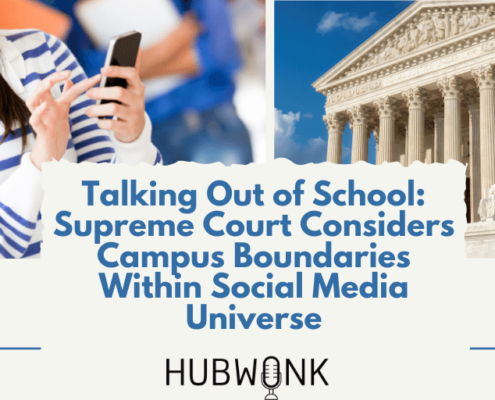
Talking Out Of School: Supreme Court Considers Campus Boundaries Within Social Media Universe
This week on Hubwonk, host Joe Selvaggi talks with constitutional scholar and CATO Institute Research Fellow Thomas Berry about the recently heard U.S. Supreme Court case, Mahanoy Area School District v. B.L., and its implications for free speech, school control, and the integration of social media into the rubric of first amendment protections.

Interstate Legal Skirmish: New Hampshire Takes Massachusetts Telecommuter Tax to the Supreme Court
Host Joe Selvaggi talks with legal scholar and George Mason University Law Professor Ilya Somin about the details, the merits, and the likely implications of the Supreme Court case, New Hampshire v. Massachusetts, on state taxation power, federalism, and the power to vote with one’s feet.

AZ Supreme Court Justice Clint Bolick on National School Choice Week
This week on “The Learning Curve," Cara and Gerard kick off National School Choice Week with Arizona Supreme Court Justice Clint Bolick, co-author with Kate Hardiman of a new book, Unshackled: Freeing America’s K–12 Education System. Justice Bolick shares his experiences serving on a state supreme court, and how it has shaped his understanding of America’s legal system.
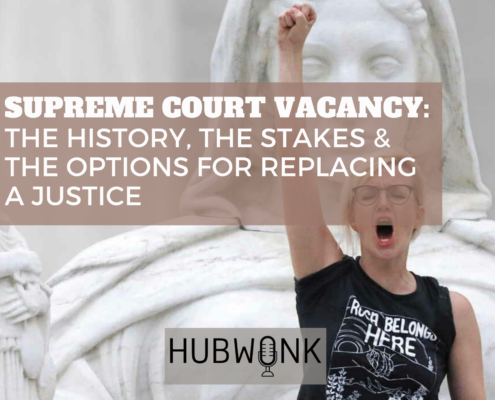
Supreme Court Vacancy: The History, the Stakes & the Options for Replacing a Justice
Hubwonk Host Joe Selvaggi talks with Cato Institute's Ilya Shapiro about his new book, Supreme Disorder: Judicial Nominations and the Politics of America's Highest Court. The episode equips listeners with historical context to better understand the makeup of the Court, the nomination process, and the impact of a new justice on the Court.

Education tax credit programs extend choice to families who can’t afford private schools or to move to a tony community
Thanks to the Supreme Court’s Espinoza ruling, many more students can reap the benefits of school choice

Lead Plaintiff Kendra Espinoza & IJ’s Attorney Erica Smith on Landmark SCOTUS School Choice Decision
This week, in a special segment of “The Learning Curve,” Cara and Gerard are honored to be joined by Kendra Espinoza, lead plaintiff in the landmark U.S. Supreme Court case, just decided yesterday, Espinoza v. Montana Department of Revenue, and Erica Smith, an attorney with the Institute for Justice, which represented the plaintiffs.

Public Statement: Pioneer Institute Applauds U.S. Supreme Court Ruling in Espinoza School Choice Case
Pioneer Institute applauds today’s U.S. Supreme Court’s decision striking down a bigoted state constitutional amendment in Espinoza v. Montana Department of Revenue. Like Massachusetts, Montana is among nearly 40 states with so-called anti-aid amendments, which have roots in 19th century anti-Catholic, anti-immigrant discrimination.

The Institute for Justice’s Tim Keller on Espinoza v. Montana DOR & ongoing school choice litigation
This week on “The Learning Curve,” Cara and Gerard continue coverage of COVID-19’s impact on K-12 education, joined by Tim Keller, Senior Attorney with the Institute for Justice, which is representing the plaintiffs in the high-profile Espinoza v. Montana Department of Revenue case currently before the U.S. Supreme Court,.
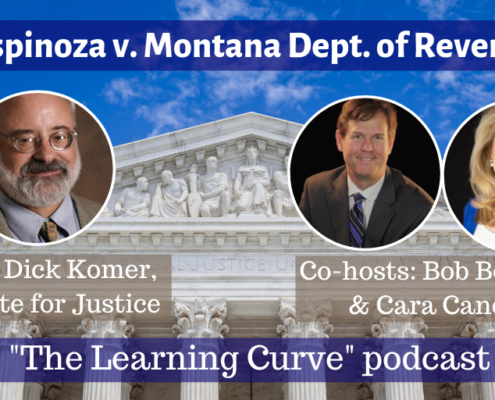
Dick Komer on Espinoza v. Montana & the Bigoted Legacy of Blaine Amendments
On this episode of “The Learning Curve,” Bob & Cara are joined by Dick Komer, Senior Attorney with the Institute for Justice. Komer led the oral argument this week before the U.S. Supreme Court on behalf of the plaintiffs in the high-profile school choice case, Espinoza v. Montana Department of Revenue.
